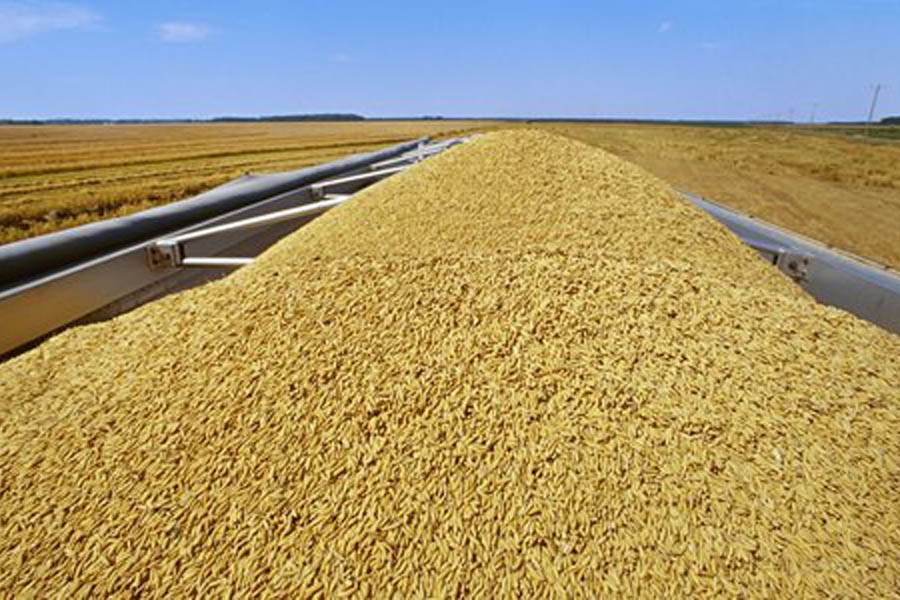As trade tensions between China and the US are cooling off following a truce, US farm groups are eager to get back into the Chinese market, with some even travelling to China to pursue business deals.
The first sale of US rice to a private Chinese importer was confirmed last week at a promotion event in Guangzhou, South China's Guangdong Province. According to a statement by the USA Rice Federation (USA Rice) on Wednesday, the deal was made between Sun Valley Rice and a private Chinese importer with the help of the agricultural trade promotion (ATP) programme funded by the US government.
USA Rice said it plans to hold two more events in Shanghai and Shenzhen, Guangdong in August to promote US rice to Chinese buyers.
"Fifteen years of patience and hard work have paid off," the CEO of Sun Valley Rice was quoted as saying in the statement on the US' access to the Chinese market, noting that more US companies may make more deals with Chinese companies that have expressed interest in US rice.
US farmers are still among the hardest-hit amid the trade war, but once restrictions on agricultural products are lifted, there will be huge opportunities for potential cooperation in agriculture between China and the US, including rice as well as other products such as meat, according to Wang Jun, deputy director of the Department of Information at the China Center for International Economic Exchanges.
"The US has a very high productivity level in the agriculture sector," Wang said. "It relies a lot on international market for the consumption of its agricultural products such as corn and soybeans. The current restrictions on US farm imports have hurt a lot of the US farmers. Once the restrictions are lifted, more opportunities will be presented to US farmers."
China is the world's biggest importer of farm goods. According to cinic.org.cn, the total value of imported farm products last year reached $13.71 billion, up 8.9 per cent from 2017.
Imports of meat are especially in high demand this year. According to statistics released by the General Administration of Customs, China's meat imports reached a record high of 556,276 tonnes in May, a 45 per cent year-on-year increase, due to a domestic shortage of live pigs. Pork imports witnessed the sharpest hike, rising 63 per cent to 187,459 tonnes.
During a recent press conference at the Ministry of Agriculture and Rural Affairs, Deputy Minister Yu Kangzhen said that China does not exclude the US as a source of pork.
"China and the US have strong complementarity and broad cooperation space in the agricultural sector, which has been affected by the trade friction," Gao Feng, spokesperson from the Ministry of Commerce, said during a press conference on Thursday. "This is not what we hope to see. Agricultural products are an important issue for the two sides to discuss," Gao said.
Ma Wenfeng, a Beijing-based agricultural analyst, told the Global Times on Thursday that the next round of trade talks will allow more cooperation between China and the US, which can benefit both sides.
"For US farmers, who rely heavily on exports, China can promise a huge market for their products," Ma said. "For China, the US is also a great source of high-quality agricultural products that help with food security."


